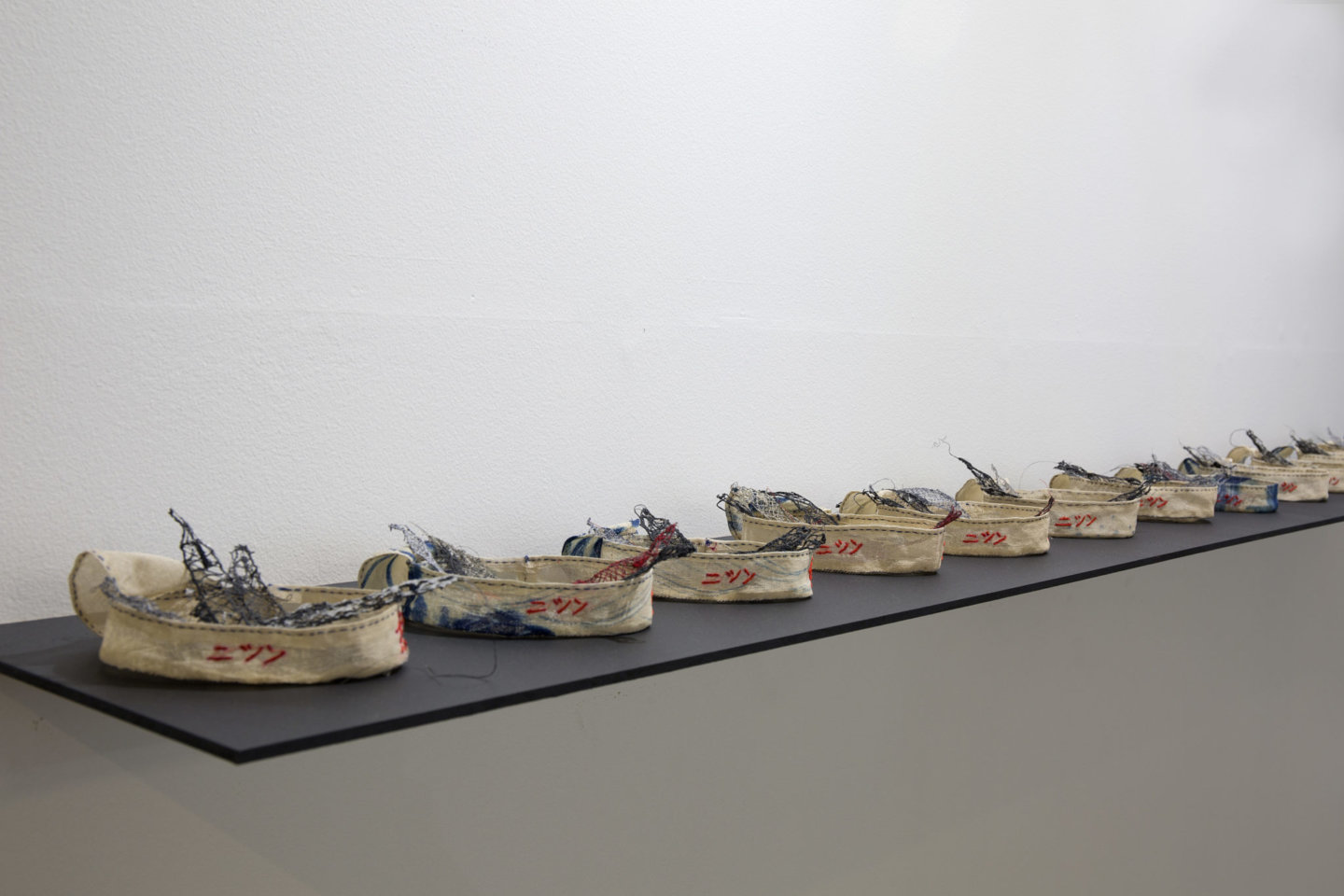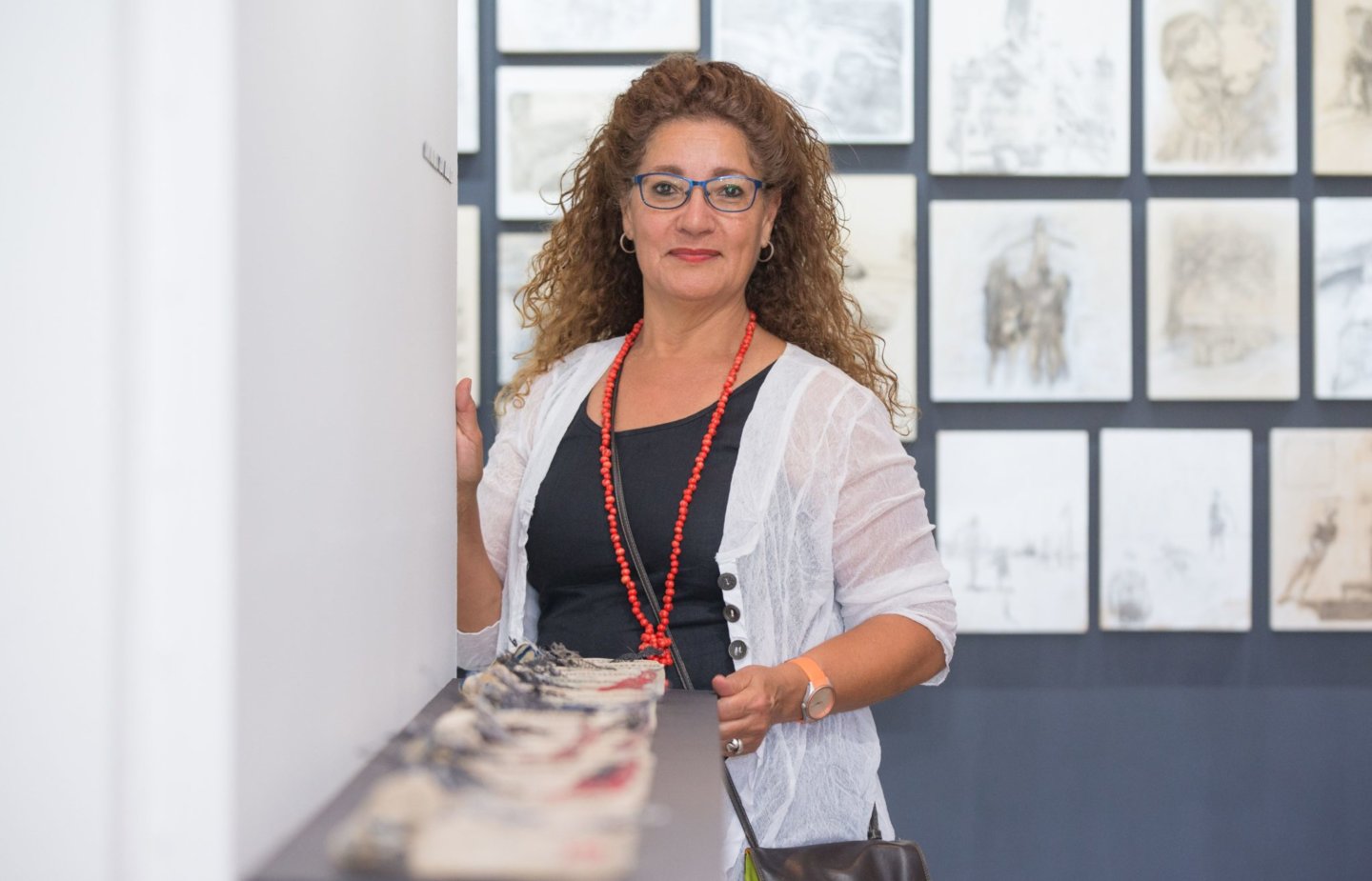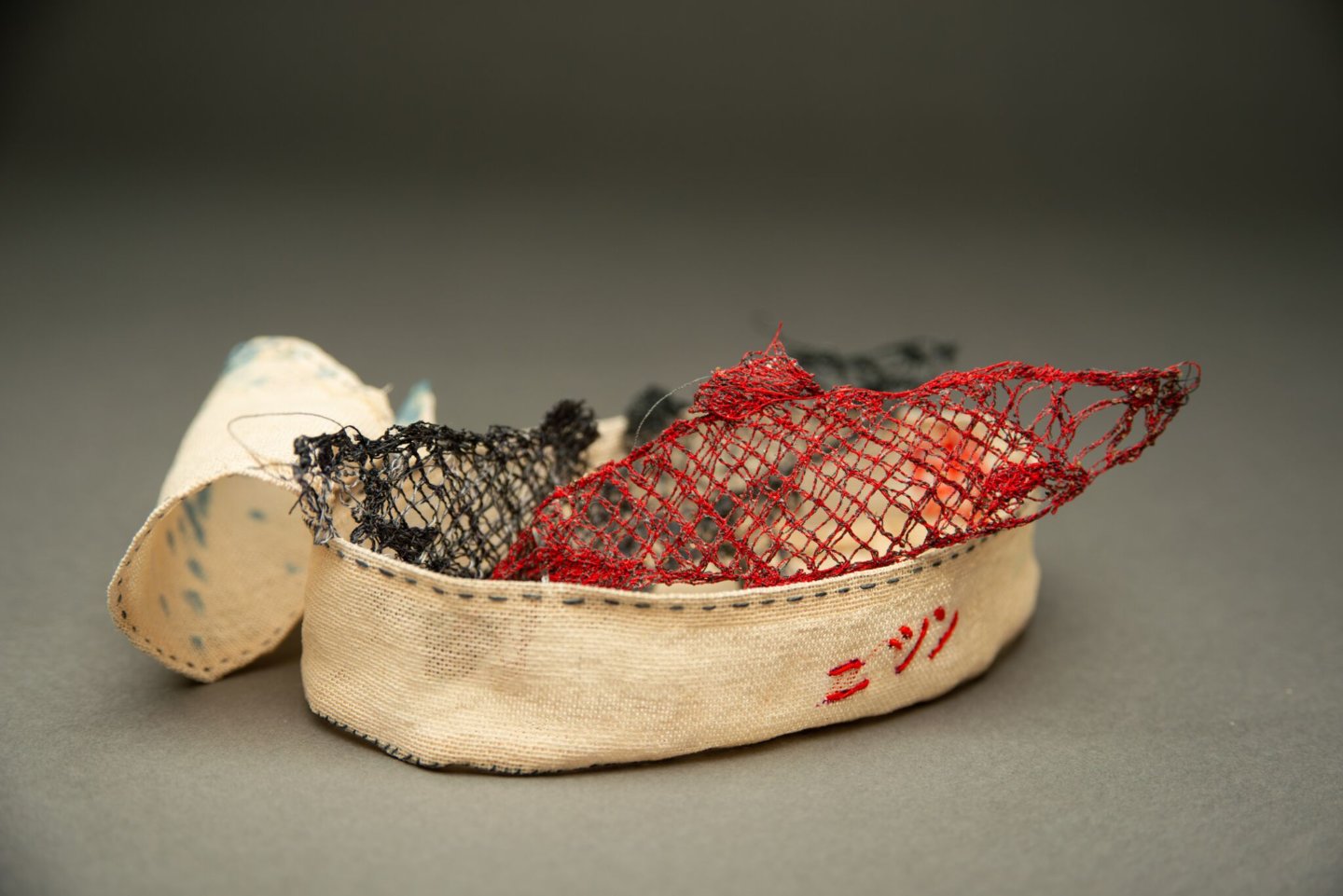Philomena Hali
Canned Herrings – a Baker’s Dozen
Mandurah Fish Canning & Preserving Works was activated by Charles Broadhurst in 1878 with an enterprise situated in Smart Street. In 1880 the Tuckey brothers started a second enterprise in the Canning market with the Peel Inlet Preserving Works – here they sourced fishermen from Japan with some of the families still living in the Peel region today.
Louis Dawe, a tinsmith to the Tuckey Brothers, later established his own Pleasant Grove Preserving Works on the southern estuary, a smaller scale enterprise. To date there still remain cans of herrings and mackerel in the Community Museum in Mandurah.
Canned Herrings – a baker’s dozen was developed in response to the Fish Canneries in Mandurah and honours the Japanese community who worked them.
Hali’s used Japanese hemp and noren/curtains stitched using bojagi seams to form the can which house the fish/herrings. The fish are made from machine stitched thread, giving a ‘skeletal’ appearance to their forms – kind of disappearing-ethereal fish from back in the day. By adding text and using original norens from Japan, Hali acknowledges the Japanese fishermen who worked in the industry.
Philomena Hali is a practicing textile & fibre artist who uses a myriad of techniques to create one-off art works, in flat & 3D forms, plus recycled clothing and accessories. These involve, dyeing, Shibori, stitching/Bojagi, machine sewing, fibre basketry traditional techniques & felt. Hali moved to WA, her home state, in 2018, after living in Central Australia for 31 years where she worked in the community in many artistic roles. Hali exhibits nationally and internationally with work in many museums, galleries and private collections. She will continue to exhibit, teach and share her knowledge in WA where possible. Her passion lies in the ‘processes’ of making and passing on information to anyone wishing to learn.
Photo credit: Lyn Nixon, Daniel Wilkins and Ross De Hoog


